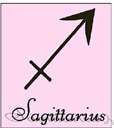arch·er
(är′chər)n.
1. One that shoots with a bow and arrow.
2. Archer See Sagittarius.
[Middle English, from Old French archier, from Late Latin arcārius, alteration of arcuārius, maker of bows, from Latin arcus, bow.]
American Heritage® Dictionary of the English Language, Fifth Edition. Copyright © 2016 by Houghton Mifflin Harcourt Publishing Company. Published by Houghton Mifflin Harcourt Publishing Company. All rights reserved.
archer
(ˈɑːtʃə)n
(Military) a person skilled in the use of a bow and arrow
[C13: from Old French archier, from Late Latin arcārius, from Latin arcus bow]
Archer
(ˈɑːtʃə)n
(Astronomy) the Archer the constellation Sagittarius, the ninth sign of the zodiac
Archer
(ˈɑːtʃə)n
1. (Biography) Frederick Scott. 1813–57, British inventor and sculptor. He developed (1851) the wet collodion photographic process, enabling multiple copies of pictures to be made
2. (Biography) Jeffrey (Howard), Baron Archer of Weston-Super-Mare. born 1940, British novelist and Conservative politician. He was an MP from 1969 until 1974. His novels include Kane and Abel (1979), Honour Among Thieves (1993), and The Fourth Estate (1996): from 2001 to 2003 he was imprisoned for perjury and attempting to pervert the course of justice
3. (Biography) William. 1856–1924, Scottish critic and dramatist: made the first English translations of Ibsen
Collins English Dictionary – Complete and Unabridged, 12th Edition 2014 © HarperCollins Publishers 1991, 1994, 1998, 2000, 2003, 2006, 2007, 2009, 2011, 2014
arch•er
(ˈɑr tʃər)n.
1. a person who shoots with a bow and arrow.
2. (cap.) the constellation or sign of Sagittarius.
[1250–1300; Middle English < Anglo-French; Old French archier < Late Latin arcuārius=arcu(s) bow (see arc) + -ārius -ary]
Random House Kernerman Webster's College Dictionary, © 2010 K Dictionaries Ltd. Copyright 2005, 1997, 1991 by Random House, Inc. All rights reserved.
ThesaurusAntonymsRelated WordsSynonymsLegend:
| Noun | 1. |  archer - a person who is expert in the use of a bow and arrow archer - a person who is expert in the use of a bow and arrowexpert - a person with special knowledge or ability who performs skillfully longbowman - a medieval English archer who used a longbow |
| 2. |  Archer - (astrology) a person who is born while the sun is in Sagittarius Archer - (astrology) a person who is born while the sun is in Sagittariusindividual, mortal, person, somebody, someone, soul - a human being; "there was too much for one person to do" astrology, star divination - a pseudoscience claiming divination by the positions of the planets and sun and moon | |
| 3. |  Archer - the ninth sign of the zodiac; the sun is in this sign from about November 22 to December 21 Archer - the ninth sign of the zodiac; the sun is in this sign from about November 22 to December 21 |
Based on WordNet 3.0, Farlex clipart collection. © 2003-2012 Princeton University, Farlex Inc.
archer
noun bowman (archaic), toxophilite (formal) infantry, archers and cavalrymen
Collins Thesaurus of the English Language – Complete and Unabridged 2nd Edition. 2002 © HarperCollins Publishers 1995, 2002
Translations
رامي السِّهام
lukostřeleclučištník
bueskytte
íjász
bogmaîur, bogaskytta
lankininkasšaudymas iš lanko
strēlnieks
łuczniczkałucznik
lukostrelec
okçu
archer
[ˈɑːtʃəʳ] N → arquero/a m/fCollins Spanish Dictionary - Complete and Unabridged 8th Edition 2005 © William Collins Sons & Co. Ltd. 1971, 1988 © HarperCollins Publishers 1992, 1993, 1996, 1997, 2000, 2003, 2005
Collins English/French Electronic Resource. © HarperCollins Publishers 2005
archer
Collins German Dictionary – Complete and Unabridged 7th Edition 2005. © William Collins Sons & Co. Ltd. 1980 © HarperCollins Publishers 1991, 1997, 1999, 2004, 2005, 2007
Collins Italian Dictionary 1st Edition © HarperCollins Publishers 1995
archer
(ˈaːtʃə) noun a person who shoots with a bow and arrows.
ˈarchery noun the art or sport of shooting with a bow.
Kernerman English Multilingual Dictionary © 2006-2013 K Dictionaries Ltd.